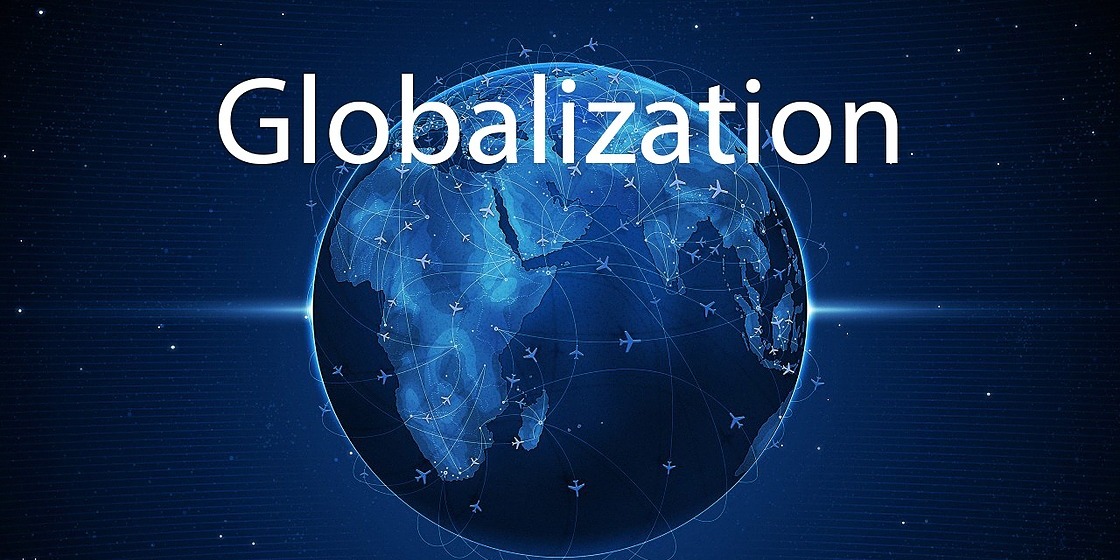Looking at the past few years, it is becoming quite evident from the events that have occurred worldwide that the trend of nationalism has risen, once again. History repeats itself, and it has done so for the arena of nationalism. The last time when nationalism was rampant in the world were the turbulent years after Great Depression, rise of Hitler and World War 2. Now, what surprises most of the intellectuals more than this trend is how fast the trend of globalization and liberalization have faced severe backlash in a mere span of 25 years or so.
Lets delve back into history to understand why the era of nationalism and separatism based on country, ethnicity and even to certain extent religious extremism have emerged. Not far back, just 29 years before, in 1991, the world saw the collapse of Soviet Union and its political communism. Today, only handful of countries are communist, such as N.Korea, China, Vietnam, and with the exception of N.Korea, all the others have embraced state capitalism, on the economic front by discarding the socialistic state planned economic model. In 1989, the Berlin Wall fell, and it led to the domino effect of the plummeting of the communist satellite countries in East Europe, and Russia at the end. The world saw this rare, bizarre event and the west proclaimed its supremacy in the ideals of free market capitalism, democracy and globalization. Francis Fukuyama even went ahead with its book, “The end of History and the Last man” with a false, short term belief that with this victory, there will not be any war, or crisis in the world, and hence, the whole world will be one planet with one political system (democracy), one economic system (capitalism). What he actually meant was one planet under one superpower (USA)!
Anyways, it didn’t take long enough for the world to see a new crisis in the form of 9/11. Soon, the superpower was at war( as it always has been after every few years or so), and with that event, new conflicts emerged. As early as 2007, it was slowly becoming evident that the world is becoming more and more multi-polar. In fact, in the Munich conference in 2007, Putin famously brought this to the world’s attention. This is because the rise of Putin to the Presidency of Russia, was itself the first blow to the USA led world. Before Putin, during the Yeltsin years, the world saw how Russia suffered immensely under its corrupt government ( which was supported by USA), and billionaire oligarchs. With Putin, who became President in 2000, it all ended, and that was the first rise in nationalism ( in the form of Russian patriotism) in the world.
Then, with the disastrous Iraq war from 2003 to the Great Recession in 2007-08, USA started losing its economic clout, and was soon challenged by China. China since 1979, with its opening up to the world, had been silently making its pockets deeper with the US dollars, and the whole world realized this only in the last decade. The last decade, from 2010, led to the increase in nationalistic fervor all over the world. This is because of many reasons. One of the them is the loss of economic clout, and the moral superiority of USA. The world admired USA for its success and moral responsibility to protect the freedom, and human rights during the two world wars. Then, after WW2, it was its war against communism which made the world choose the former, due to the lack of freedom and democracy in USSR’s Iron curtain. But after the collapse of Soviet Union, there was no enemy left against USA. Suddenly the vacuum which was created made USA arrogant of its supremacy. In political vocabulary, there were no ‘checks’ on its actions. Even the UN, UNSC were dominated by USA and its allies.
But after the 9/11, Afghanistan-Iraq war under the incompetent Bush regime, and the economic recession, the ‘American Dream’ slowly started losing its glory. The world started accepting the fact that USA was not in its best position as it used to be before to protect the other nations. This led to the triggering of the nationalistic sentiments, however small they might be. Even in USA, the people were fed up with the country’s role as defacto ‘world’s policeman’, and they wanted to keep their country away from world affairs. This was a huge shift in the country’s outlook, unlike the years during world wars or cold war, when USA used to take lead in the world affairs, and even frequently interfered in other country’s internal matters.
Then, the Arab springs revolution happened in 2011, which led to overthrow of USA backed dictators in Middle east and North Africa. Russia’s annexation of Crimea in 2014 added fuel to fire to the rising nationalism, and the world did nothing about it. Also, worth noting is the fact that during this time, from 2010 to 2013, with the Wikileaks, and whistleblowers like Ed Snowden and Bradley/Chelsea Manning, the world came to know about the spying program USA had been doing on the world for many years. This led to more concern about the sovereignty and integrity of the nations. Even the allies were spied and this led to the further loss of the trust among the nations with United States. Then the next two events turned to be pivotal in the rise of nationalism as we see today. They were the Brexit in 2015 and Donald Trump’s surprising victory in 2016. Infact, such was the effect of these two events over the world, that most of the escalation in nationalism, right wing, alt-right and tensions all over the world can be attributed to these two events.
Since, 2016, we have seen the rise in new Cold aka Trade war between USA and China, USA’s withdrawal from many treaties and organizations, rise in conflicts between countries like India-China, USA-Iran, and even rise in racial and ethnic tensions in USA and some parts of Europe as well. It seems that the liberal order since 1991 is slowly disintegrating all over the world. Today, we see that many countries have either elected right-wing, nationalistic, anti-establishment ( anti liberal and globalization establishment) leaders or the leaders have proclaimed themselves to be the defacto supreme dictators who can rule the country till their last breath. The first group includes countries like India, where Narendra Modi has been elected twice in 2014 and 2019, with huge majority. He is known for his ardent patriotism with ties to the right wing group, RSS. Besides, we see Brazil with the election of Bolsenaro, PM Boris Johnson in UK, Benjamin Netanyahu in Israel, PM Viktor Orban in Hungary and many more in Europe as well. Even respected liberal German chancellor, Angela Merkel will step down in 2021, and there has been rise in neo-nazism and hatred of immigrants from the middle least, especially Syria and Afghanistan. Only Canada and France remain liberal with their leaders Trudeau and Macron. But even they are challenged by right wing parties in their respective countries.
While the other group includes countries like Russia, China, Saudi Arabia and Turkey, where Putin, Xi Jinping, MBS and Erdogan have become dictators respectively. On one side even though Russia is criticized by the liberal, left media for Putin’s dictatorship and for its killing of opposition leaders ( the most recent being the poisoning of Alexei Navalny), but on the other side, we see the right wing media praises Russia for reviving the nationalistic trend, and even lauding it to the only country to preserve the good old Christianity values. For the right wing believers who watch Fox news, USA has become dominated by the minorities, immigrants and Jews, and the old USA ( white, Waspy, protestant) establishment has dwindled over the years. No wonder Trump and its followers are in good terms with Putin.
But China with its desire of empire expansion and to become the next superpower, has been facing a great deal of opprobrium, especially since the outbreak of Covid-19 pandemic, which allegedly originated from Wuhan. Further, its border tensions with India, after it purposefully incited violence on the Indian soldiers, led to heightened tensions between the countries. China has aggressively silenced the pro-democracy supporters in Hong Kong, and annexed the island. It continues to blockade Hong Kong and Taiwan from foreign support, and has led to forced detention of Uighur Muslims in Xinjiang province. Further, it has extended economic support to third world countries which usually result in ‘debt trap’ or ‘debt diplomacy’ under the disguise of sophisticated marketing of Belt and Road or The new Silk Road . The world saw how Sri Lanka lost the Hambantota port to China, and the same is happening in other countries in Asia and Africa. Hence, the seeds of future conflicts are being sowed.
Finally, we see the conflict in the middle east as the sands and winds of middle east have always been hot and turbulent. Besides, the age old Israeli-Arab and Iran-Saudi Arabia conflict, now we see its getting more and more complicated with the US vs Iran, Iran-Syria vs Israel, and a new player in the form of Turkey, under the dictatorship of Racep Tayyip Erdogan. Recently, he converted the two museums into mosques and has challenged the Saudi led Muslim world with a new hub of Muslim leadership under Turkish banner. Even MBS have consolidated his richest empire and have become the defacto ruler in the family of Saud. Hence, earlier the middle east was divided into three camps, with Saudi Sunni Arabs, Persian Shia Iran and Zionist Israel. Now, the fourth entry is that of Turkey with its ambitions of a Neo-Ottoman empire.
Thus, it looks like this trend of nationalism is here to stay. The geopolitics has already been covered by the differences and conflicts among the nations, and unless, a peaceful and promising resolution is figured out, there seems to be no end to this trend. We hope that this does not lead us to another catastrophic world war, whose chances have been never been higher before. Many liberals, centrist and left intellectuals have been perplexed by this sudden rise of right wing forces, and many of them are burning the midnight oil to understand what went wrong in their liberal, globalized, world order, which seemed to be omnipotent, just 25 years back. Lets see how the world and its geopolitics unravels before us.
Copyright notice:
© Abhishek Karadkar and abhiknotes.com, 2020. Unauthorized use and/or duplication of this material without express and written permission from this site’s author and/or owner is strictly prohibited. Excerpts and links may be used, provided that full and clear credit is given to Abhishek Karadkar and abhiknotes.com with appropriate and specific direction to the original content.
Copyright © 2020 AbhikNotes – Powered by WordPress.com



